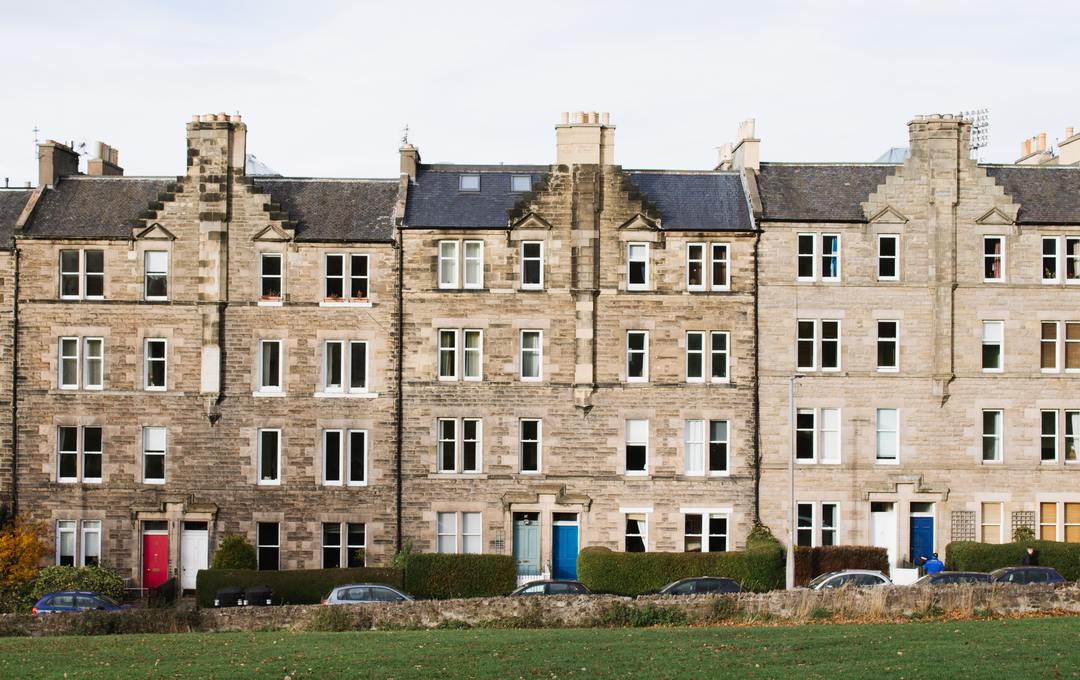Building homelessness prevention duties in Scotland

Cyrenians worked with frontline workers to develop an indepth response to the recent Scottish Government consultation on introducing new duties to prevent homelessness, which could be the most substantive policy change on homelessness since priority need was abolished a decade ago, and would introduce legitimately world-leading legislation.
At least 8% of the Scottish population have experienced homelessness. Working to prevent homelessness is vital, so as few people as possible have to experience the trauma and indignity of homelessness.
Following the work done in 2017-2018 on identifying barriers to ending homelessness, the independent Prevention Review Group set up by the Scottish Government last year released Preventing Homelessness In Scotland, identifying legal duties on local authorities and public services that could help prevent homelessness. This work was supported by the Prevention Commission, a group of people with lived and frontline experience of homelessness, who emphasised the importance of choice, control and partnership for people facing homelessness.
In order to develop these findings into legislation, the Scottish Government held a consultation, ending on March 31 2022. To feed into this consultation, Cyrenians collated feedback from 40 colleagues working in different Cyrenians services, including Outreach, Housing First, Addiewell Visitor Centre and Mediation & Support, as well as holding consultation events with the Scottish Frontline Network and All In for Change. It was vital to us to ensure the response included a range of different perspectives from frontline workers, managers, and service users.
Overall, the proposals are a step in the right direction and could improve coordination between organisations to help people get the specific support they need. We also welcome the intention to oblige public services to look out for people in vulnerable situations. But we want to recognise the amount of resourcing needed to make this happen effectively, including improving capacity and staff skills and awareness.
Services beyond housing (such as public bodies, local authorities and social and private landlords) need training to understand the pathways into and out of homelessness and how to work with people at risk of homelessness in a respectful and person-centred way – we've already seen the impacts this education and understanding can have in our Hospital Inreach programme.
There are a few key concerns raised in the Cyrenians response, though, which are vital to address moving forwards in this legislative process.
Lack of resources and affordable housing
In a recent survey of frontline workers in Scotland. 46% of frontline workers stated that the resources available to prevent homelessness were “low” or “very low”, while 43% said the same for resources available to alleviate homelessness. 64% of participants found it “difficult” or “very difficult” to access accommodation for the people they work with. Housing and support is often under-resourced, with local authorities already stretched thin to meet the need for affordable housing.
To prevent homelessness, we need to meet the continuous need to increase social housing and security in the private rental sector, and support to prevent the accumulation of debt among people with mortgages.
Capacity in other services
Local authorities being obliged to actively look out for emerging problems will likely mean more referrals to support services. Some services, for example in mental health, already have long waiting list and may not have the capacity to support people right away. 75% of participants in the Frontline Worker Survey found it “difficult” or “very difficult” to access mental health support for the people they work with. What does it mean to provide reasonable steps to prevent someone’s homelessness if they’re referred to a service but won't get the support they need for months or even years? Local authorities need to make sure that there are sufficient and high-quality support services which are properly funded to provide long-term.
Not everyone’s homelessness can be prevented
Extended prevention duties mustn’t be allowed to reduce support for people who do end up in homelessness, and these households should receive the same amount of resources and support as those trying to prevent homelessness. Prevention initiatives can’t be used as a reason to reduce crisis services.
Existing housing rights should not be diminished
People shouldn’t have to choose between security and quality, and existing rights to permanent accommodation should not be diminished. Seeing people go into temporary living situations, for example, young people staying with parents, should not be the end of the journey – support needs to continue. People also need the right to change their mind if an option is not working out, without accused of being “intentionally homeless”.
The person should be at the centre of any decision
An unintended consequence of an extended prevention duties could be that Local Authorities might demand that people to go through certain prevention activities to access a homeless application. Nobody should be coerced into going through the motions of prevention activities that are no longer helpful. People need to get the right accommodation for their specific situation and must not feel pressured to accept an unsuitable living situation. This will take flexibility and trauma informed practice from services, making sure that the person is at the centre of any decision and able to make informed choices about their options.
People with lived experience of homelessness and frontline experience in the sector must be involved throughout developing and delivering homelessness prevention policy. This includes learning from existing projects that are making great impacts in prevention work, including Cyrenians’ Hospital Inreach team, HMP Addiewell Visitors Centre and Mediation and Support service.
Read more
Read the full consultation response
Download the indepth response to the Scottish Government consultation based on Cyrenians' consultations with frontline workers, service users and managers
